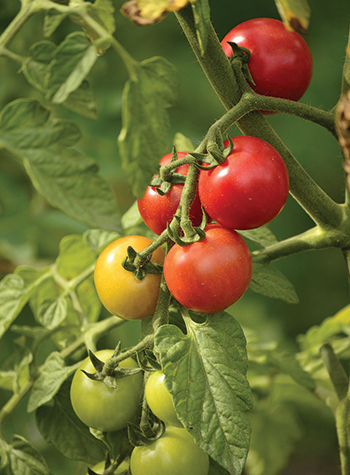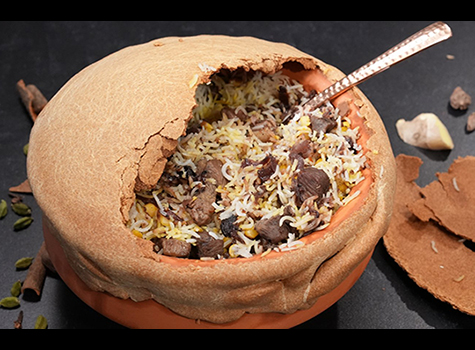 A life of unlimited luxury, robots available 24/7 to complete chores, flying cars, materialistic demands fulfilled at the click of a button, wouldn’t all that be nice? Ah, the twenty-first century! Generation X folks may still remember the fantasies we had in the 80s while visualizing a futuristic utopia, but the reality of the current era has been a disappointment. Other than instant gratification of items and services available through the internet, the hype did not live up to expectations of dreamers and sci-fi fans.
A life of unlimited luxury, robots available 24/7 to complete chores, flying cars, materialistic demands fulfilled at the click of a button, wouldn’t all that be nice? Ah, the twenty-first century! Generation X folks may still remember the fantasies we had in the 80s while visualizing a futuristic utopia, but the reality of the current era has been a disappointment. Other than instant gratification of items and services available through the internet, the hype did not live up to expectations of dreamers and sci-fi fans.
I guess we should have suspected these failures since the century was predicted to begin with ominous warnings of Y2K. While there has been a good measure of progress, the world has been punished by devastating hurricanes, forest fires, not to mention, the pandemic. Additionally, chronic illnesses are on the rise and humans are more depressed than ever. In a recent conversation with my mother, we started discussing the festive season and meandered to the topic of climate change and an increase in chronic illnesses.
Predictably, my mother claimed that this was a result of poor eating habits. Mothers will be mothers, I thought to myself, but scientists are drawing the same conclusions. “You are what you eat”, “Nourish your body and you nourish your soul”, these quotes from family elders that seemed to fade in the background when we were little are replaying in Dolby stereo today.
Nevertheless, I refuse to believe that it is all gloom and doom. The excitement of Diwali and allure of mouthwatering delicacies has put me in an optimistic mood. It has also diverted my attention to things we have been doing right. For over a decade, we have been growing vegetables in the backyard during summers. The fruits of our labor have brought us many joys.
It started with my husband’s fondness for gardening that was nurtured by his grandfather. At first, we tried our hand at the easy ones like tomatoes and cucumber and its success emboldened us to experiment with plants that demand more attention.
Since my husband is the one with the green thumb, the rest of the family members follow his lead. When our kids were younger, their contribution was plucking strawberries, playing in the dirt, and collecting fond memories. Over the years, my favorite part has been trying new recipes with the week’s harvest that seems to vary from a bumper crop of karela (bitter melon) to an extra-large lauki (a kind of gourd). This usually makes cooking less boring, but it also means ending up with a ton of organic waste like leaves, peels, bug eaten, overripe fruit that was not harvested on time.
Eventually we added a large compost bin that continues to turn the waste into nutrition for future plants and we’ve grown more appreciative of that humungous green box despite its lack of aesthetic appeal. For five months out of twelve, we consume fresh produce, reduce trips to the grocery store, and have fewer plastic bags or packaging materials to dispose.
Most days slow food wins over fast food although the convenience of drive-through pick-ups has been a lifesaver on many occasions.
It would be nice if the bulk of food we cook could be grown easily or if we could barter goods like our forefathers did while still holding on to our day jobs. Rumors of a modern version of this idea was churning a few years ago but the crash of the housing market in 2008 probably buried those plans. In my current wave of positivity, I feel that all is not lost, and a residential neighborhood designed to have large kitchen and flower gardens as well as a community market would be a great concept especially for a retirement community. I can picture active seniors engaging in light gardening to grow flowers and food, hanging out with neighbors who share similar interests and adopting a primarily plant-based diet. Inspired by Dan Buettner’s research on longevity, this simple lifestyle could be an attractive option as we age.
The current obsession with continuously seeking pleasures is leading to greater sadness, proving that abundance and technology are not the boons they appear to be. Perhaps, humble pursuits with less materialistic and more nourishing results will be beneficial to all age groups. Home builders could potentially create site plans that will allow more space for gardening and lesser patches of grass. Once buyers demonstrate a desire for such homes, more sellers are likely to provide those outdoor designs. In fact, regardless of the type of dwelling, residents should have innovative options to engage in gardening with the added benefit of helping the environment. It is my sincere belief that we will begin to make that shift soon.
So, on this Diwali, I hope that I have sown the seeds of gardening in your mind and pray that Goddess Annapurna brings you and your loved ones good health and nourishment. Shubh Deepavali!
Shyama Parui is a long time North Carolina resident and an ardent writer. You can reach her at: shyamashree_parui@hotmail.com.



